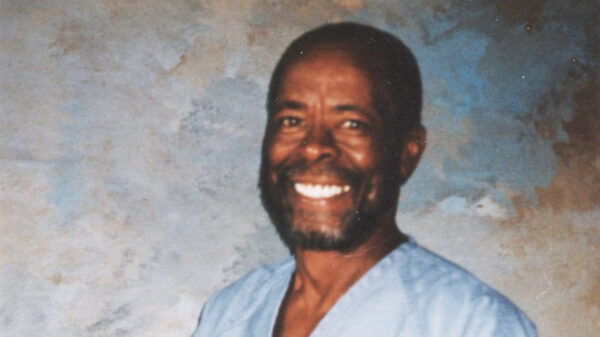‘The Law .. Gives Him the Right to be Paroled Today’: Former Black Panther Freed After 49 Years by New Jersey Supreme Court In Controversial Split Decision
A former Black Panther and Black Liberation Army member, who shot and killed a New Jersey state trooper, has been ordered free by the state’s highest court. Forty-nine years later, a recent decision will now afford him an opportunity to spend the last years of his life with his family.
On Tuesday, May 10, the New Jersey Supreme Court overturned a parole board ruling and granted parole to Sundiata Acoli in the shooting death of a trooper, Werner Foerster, on May 2, 1973.
Image via Sundiata Acoli on Twitter/PeopleDispatch.org
The ruling obtained by Atlanta Black Star showed despite the win, it was not a clear decision. The Supreme Court was split down party lines, 3-2.
Justice Barry Albin wrote for the majority, expressing, “Our order releasing Acoli on parole does not absolve him of the senseless crimes he committed almost fifty years ago.”
“He is not released out of sympathy or compassion. He must be released because the statutory standards for granting parole have been met.”
Courthouse News reported that over the last 30 years, the 85-year-old has been eligible for parole as per his sentencing and denied each time.
While New Jersey law currently says anyone who intentionally has killed a member of law enforcement receives a life sentence without parole, that was not the law when he was convicted. That particular law was passed in 1996.
Albin, knowing the amount of pushback the decision will receive by those believing the new law should be honored, said, “However much we may abhor the terrible crimes that Acoli committed, he was sentenced and punished according to the law in effect at the time of his offenses — and he is protected by that same law, the law that we are duty-bound to uphold, the law that gives him the right to be paroled today.”
According to New Jersey Courts, “The Parole Act of 1979 provides that an inmate, such as Acoli, ‘shall be released on parole at the time of parole eligibility, unless [it is shown] by a preponderance of the evidence that there is a substantial likelihood that the inmate will commit a crime . . . if released on parole at such time.’ Only when the risk of reoffending rises to ‘a substantial likelihood’ may a parole-eligible inmate be denied parole.”
Gov. Phil Murphy said he wishes the law had been in effect 49 years ago.
“Our men and women in uniform are heroes, and anyone who would take the life of an officer on duty should remain behind bars until the end of their life,” said Murphy.
Justices Lee Solomon and Anne Patterson, the two judges who dissented, said the majority panel did not respect the opinion of the parole board. “In our view, the majority diminishes the role of the Parole Board by making this Court the finder of fact.”
Since the ’70s, Acoli has had a nation of people pushing for his release for a crime that he committed with fellow liberation fighters Zayd Malik Shakur, who was killed that night, and Assata Shakur. Shakur, who also went by the name Joanne Chesimard, escaped and made history as the first woman on the FBI’s Most Wanted List.
Neither Acoli nor Shakur has publicly admitted, denounced or apologized for their actions. Justice Solomon believes the man’s lack of remorse is problematic. The BLA member continues to maintain his innocence.
“Not only does Acoli maintain that he did not commit the murder, but he continues to claim that Trooper Foerster shot him in the hand,” Solomon wrote. “Acoli continues to relay this version of events even though the ballistics evidence and police reports completely discredit his story.”
His steadfast supporters rejoiced at his release, Raw Story reported. Heather Hanson, an ally to Acoli, said, “We are here wiping away tears of joy.”
Civil Rights attorney Soffiyah Elijah said, “We strongly hope that Mr. Acoli’s freedom will bring attention to the thousands of elders like him trapped in the New Jersey prison system.” She also thinks the freedom that he is now experiencing is “rightfully his.”
The law is the law and parole, regardless of the outrage, is his right. Justices Fabiana Pierre-Louis and Jose L. Fuentes joined Albin’s opinion.
“Neither government agencies nor our courts can bow to public outrage in enforcing the law,” Albin wrote. “Even the most scorned member of our society is entitled to be sheltered by the protection of the law, no matter how hard and vengeful the winds of public opinion may blow.”
Joseph J. Russo, one of the co-chairs of the New Jersey Office of the Public Defender Parole Project, referenced a report released in September 2021, regarding parole denials. His office found the board habitually refuses to release parole-eligible inmates from prison, keeping them incarcerated behind bars longer than their sentence intended.
Acoli is an example. The first time he became eligible for parole was in 1993. Since then, the parole board has denied him eight times.

